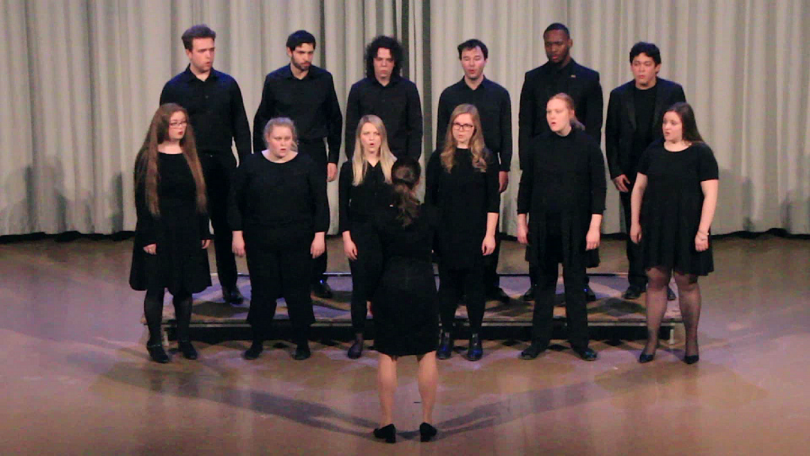Singing "In Flanders Fields"
Music and poetry have always shared a deep kinship. For as far back as there are records of music’s history, music has served as poetry’s muse while musicians have drawn inspiration from the work of poets. One need only turn to the countless examples of Shakespearean sonnets, Blakean poems, and especially, Biblical psalms for evidence of the fruitful marriage of these two powerful arts.
In many ways, John McCrae and his fellow World War I poets were the last of a Golden era of poetry: an age when poetry was a common mode of reacting to current events; a means of expression for professional and amateur authors alike.1 The horror, the devastation, and even the unexpected moments of joy brought about by the all-consuming war found articulation through many art forms. The works of poets such as Laurence Binyon, Wilfred Owen, Siegfried Sassoon, and of course, John McCrae are but only the most prominent voices among the great chorus of poetry written to reflect, deflect, and relieve the experiences of World War I.2
Likewise, the World War I era’s musicians also turned to their art to comment upon and find escape from the grief, tragedy, and incomprehensible madness of their age. The public demand for such music was supported by the sheet music industry, the productivity of which is showcased by the collections of World War I sheet music which today abound in libraries and archives throughout Europe and North America. Some composers wrote their own texts; others sought to interpret the words of the war’s soldier-poets. With its compact form and rhythmic qualities – and of course, its great popularity among soldiers and civilians alike – “In Flanders Fields” was a natural choice for the era’s composers to set to music.
What is remarkable about “In Flanders Fields” is the number of settings it has inspired: over 50 different song settings were produced in North American alone between 1917 and 1920.3 And while the rate of production has slowed, “In Flanders Fields” continues to be a text that composers choose to reflect upon war and Remembrance.
This large musical repertoire is now both cause and effect of McCrae’s poem’s enduring legacy. For many people, a choir singing is how they encounter “In Fields Flanders”. In turn, that composition and that performance becomes part of how they interpret and understand this poignant text.
One of the powers of singing poetry is how the music can enter into dialogue with the poem, creating what is simultaneously an interpretation and a brand-new work of art.
One of the powers of singing “In Flanders Fields” is how each composition – and each performance – creates a new and distinct vision of McCrae’s words, adding to the myriad of ways we experience this century-old poem.

References
1. Jonathan Vance, “A Moment’s Perfection,” in In Flanders Fields, 100 Years: Writing on War, Loss and Remembrance, edited by Amanda Betts (Toronto: Alfred A. Knopf, 2015), 200.
2. See, for example, Paul Fussell, The Great War and Modern Memory (Oxford: Oxford University Press, 1975).
3. See Jennifer A. Ward, “American Musical Settings of ‘In Flanders Fields’ and the Great War.” Journal of Musicological Research 33/1-3 (2014): 96–129.
